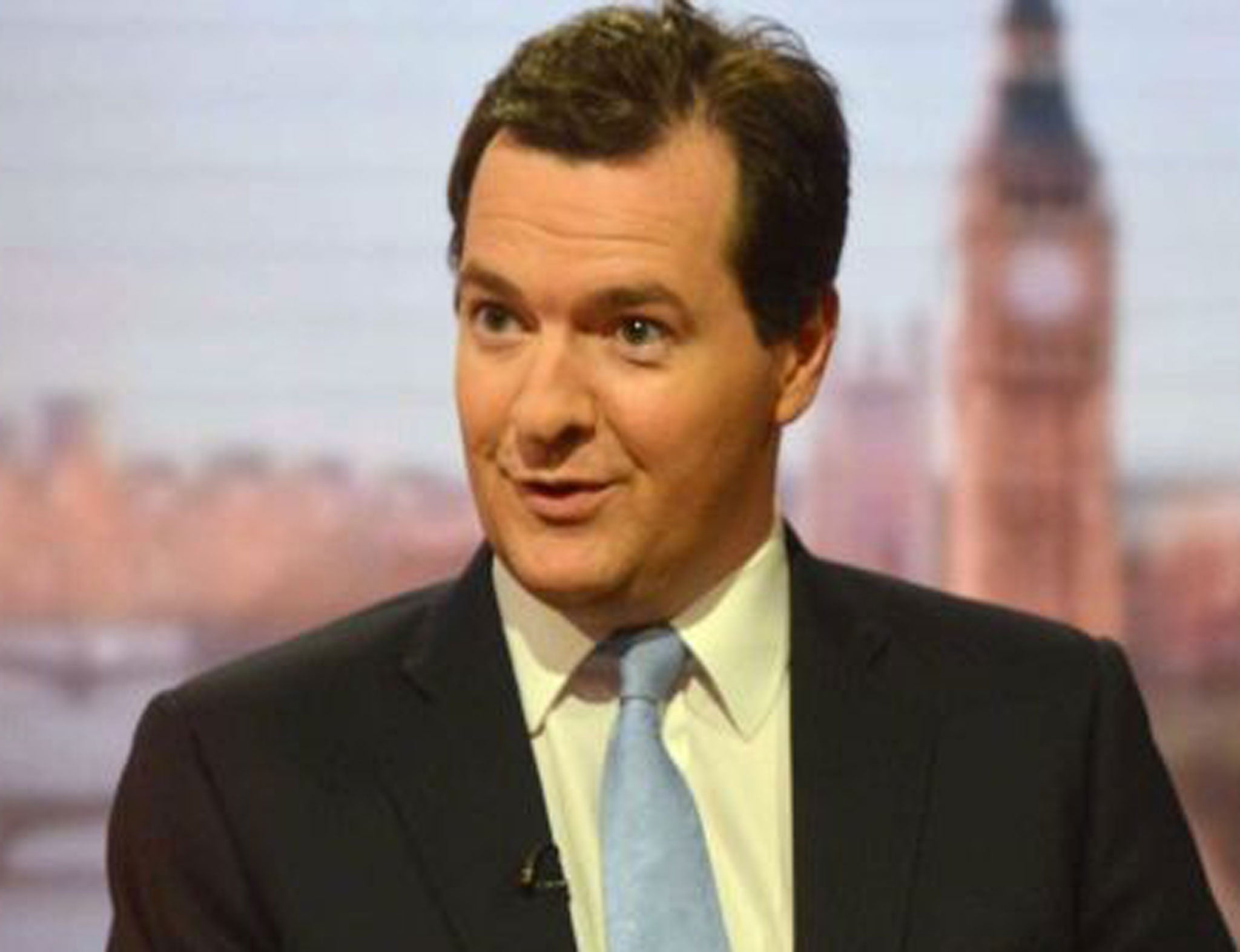George Osborne finalises deals with Cabinet ministers on budgets that will cut £11.5bn from spending
Chancellor also confirmed plans to use fines on bankers to help support the welfare of troops and veterans

Your support helps us to tell the story
From reproductive rights to climate change to Big Tech, The Independent is on the ground when the story is developing. Whether it's investigating the financials of Elon Musk's pro-Trump PAC or producing our latest documentary, 'The A Word', which shines a light on the American women fighting for reproductive rights, we know how important it is to parse out the facts from the messaging.
At such a critical moment in US history, we need reporters on the ground. Your donation allows us to keep sending journalists to speak to both sides of the story.
The Independent is trusted by Americans across the entire political spectrum. And unlike many other quality news outlets, we choose not to lock Americans out of our reporting and analysis with paywalls. We believe quality journalism should be available to everyone, paid for by those who can afford it.
Your support makes all the difference.George Osborne clinched a series of deals with senior Cabinet ministers last night over deep spending cuts to their departments.
The Chancellor reached final agreement over moves to cut £11.5bn from Whitehall spending in 2015-16 after a round of telephone calls.
A Treasury spokesman said: “We’ve completed the spending round savings early and without all the arguments you normally get.
“This shows our determination to take the tough decisions needed to deliver our economic plan and to turn Britain around.”
Mr Osborne and Danny Alexander, the Chief Secretary to the Treasury, have also finalised plans for new infrastructure projects – including road, rail, energy and technology schemes – to boost economic growth.
The proposals will be detailed on Thursday, the day after Mr Osborne sets out his package of spending cuts in the Commons.
The outcome means Whitehall’s “star chamber” will be not have to be convened to force recalcitrant ministers to sign up to reduced budgets.
Mr Osborne foreshadowed the deal by announcing yesterday he had reached agreement over the £34bn Ministry of Defence (MoD) budget.
Philip Hammond, the Defence Secretary, successfully resisted losses to frontline manpower in return for accepting more redundancies in civilian posts. Large military contracts will also be renegotiated to force their price down.
Vince Cable, the Liberal Democrat Business Secretary, had been holding out against cuts of at least £1bn to his £18bn budget, which includes higher education.
He argued that reducing spending on support for industry and universities would threaten Britain’s sluggish recovery. He finally agreed his new budget in talks yesterday with his fellow Lib Dem Mr Alexander.
The Education Secretary, Michael Gove, was under pressure to identify savings of £2bn from parts of his budget that are not ring-fenced, such as childcare and further education.
Much attention will be on the spending plans the Department for Work and Pensions, whose £210bn budget is by far the biggest slice of spending.
Iain Duncan Smith, the Work and Pensions Secretary, has offered further restrictions to housing and child benefit payments, but has been blocked by the Lib Dems.
The Department for Communities and Local Government, headed by Eric Pickles, was also among the last to settle.
Mr Osborne said the MoD cuts would require “tough choices”, but he added: “There will not be a reduction in our military capability, we are not going to reduce the number of our sailors, soldiers and airmen.
“In fact we are going to be able to spend some more money on things like cyber, which is the new frontier in defence.”
The shadow Chancellor, Ed Balls, indicated that an incoming Labour government could borrow more to invest in building projects, as The Independent predicted in April.
He said: “If the economy is still weak then, living standards are still falling, if youth unemployment is still high, and if there’s still a case on our long-term infrastructure to get things moving with interest rates low, of course there’s a case for doing that.”
Join our commenting forum
Join thought-provoking conversations, follow other Independent readers and see their replies
Comments